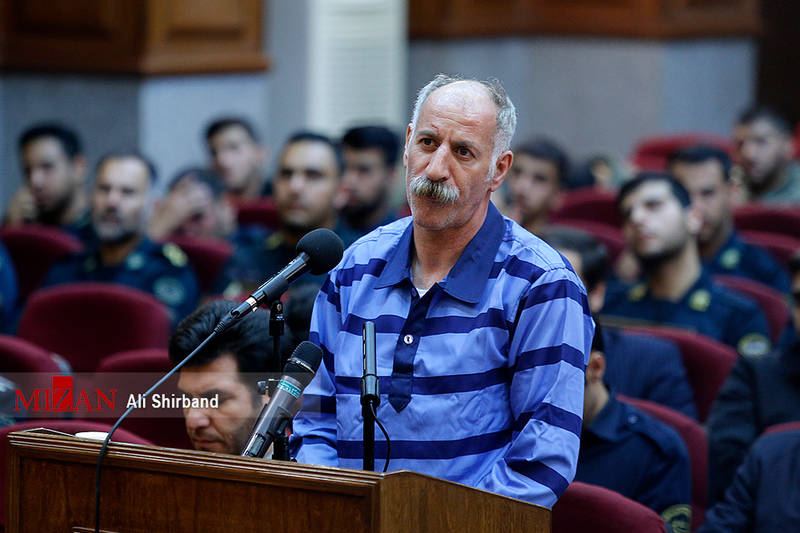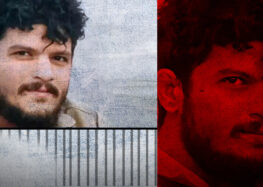Sufi Prisoner Mohammad Salas Buried After Sudden Execution Without Family’s Permission
 Lawyer: Burial Attended by “200 Anti-Riot Agents”
Lawyer: Burial Attended by “200 Anti-Riot Agents”
Iranian authorities buried the body of Mohammad Salas after he was executed on June 18, 2018, without his family’s permission at a burial presided by security agents, the Center for Human Rights in Iran (CHRI) has learned.
“They denied us our last visit… They executed our father… Then they called us and said he had been buried somewhere… My father was tortured… His head was covered with stitches… When he was brought to court they had put makeup on him like actors to hide the stitches,” Salas’ son Alireza Azami tweeted.
Hanged at dawn in Rajaee Shahr Prison in Karaj, west of Tehran, Salas, 51, was buried in Darolsalam Cemetery in his hometown of Boroujerd, Lorestan Province, in the presence of “200 anti-riot agents,” his lawyer Zeynab Taheri tweeted.
“Despite his family’s formal request for it to be transferred to the medical examiner, Mohammad Salas’ body was buried by the security forces in Boroujerd without his relatives’ permission,” the defense attorney wrote. “If you did not commit any atrocities or torture him, what were you afraid of?”
Salas was arrested on February 19, 2018, in Tehran during a violent clash between security forces and followers of the Sufi Gonabadi Order in Iran known as the Gonabadi dervishes.
He was charged and convicted of killing three policemen by allegedly driving a bus over them. In the weeks before his execution, he accused his interrogators of forcing him to confess under torture.
“I am innocent. There were two buses. I was not the driver of the bus that killed those people. I am not a killer. I cannot even kill an ant. My bus was not damaged and did not have any bullet marks. The police have fabricated all of this. I was not behind the wheel of the bus that killed those people. That was another bus,” said Salas in an audio file released by his lawyer on May 22.
Salas’ swift execution occurred three months after the Iranian authorities arrested dozens of Sufi protesters in Tehran who were demanding the release of a detained faith member who was being held in a local police station at the time.
Dervish Mohammad Raji died in police custody in Tehran sometime between February 20 and March 4 after being detained at those protests.
The Gonabadi dervishes believe in a different interpretation of Islam than that of Iran’s ruling Muslim Shia establishment. The Islamic Republic views any alternative belief system, especially those seeking converts, as a threat to the prevailing Shia establishment and has imprisoned members of the Sufi order as part of an ongoing persecution campaign.
Iranians Speak Out
Iranians took to social media to condemn Salas’ execution in the face of glaring irregularities in his case.
Former political prisoner and prominent reformist politician Mostafa Tajzadeh tweeted, “The judiciary’s unfathomable actions are causing tensions: Filtering Telegram, executing Mohammad Salas without eliminating uncertainties, issuing heavy sentences against students who took part in the December 2017 protests, keeping Mohammad Ali Taheri in prison and detaining Nasrin Sotoudeh without reason. Why is the [reformist] Omid faction [in Parliament] silent?”
“The IRIB [Iranian state-run TV] aired a confession from Salas the day he was arrested but many people didn’t believe it. He was put on trial and repeatedly said his confessions were forced. Many Sufis said he was already in detention when the accident happened. With all these ambiguities, why the hurry to execute him?” tweeted journalist Farnaz Ghazizadeh.
Salas’ lawyer Zeynab Taheri tweeted, “You are witnessing the crushing of people’s rights. The world is a witness, I will certainly follow up on this matter with international organizations.”






